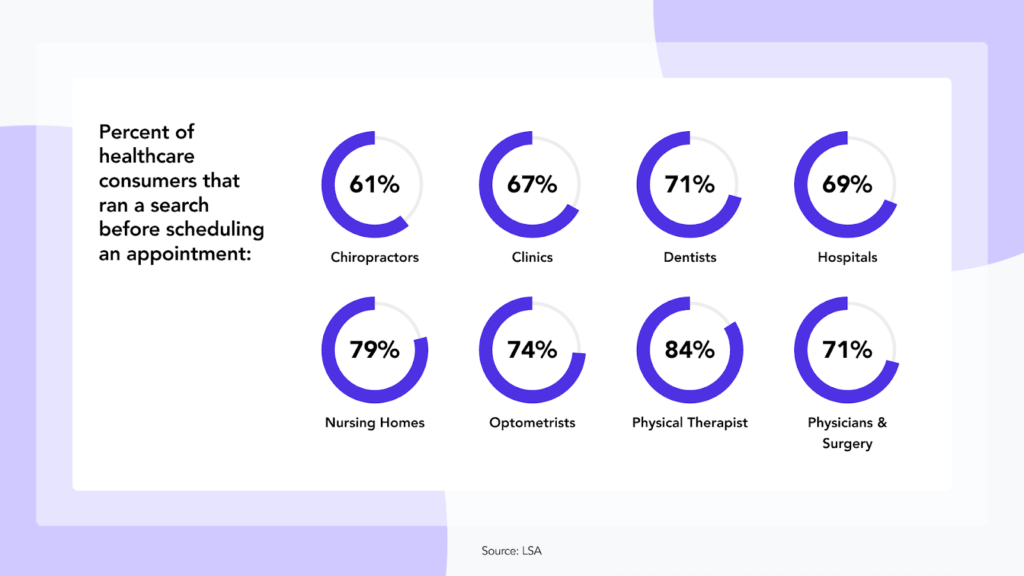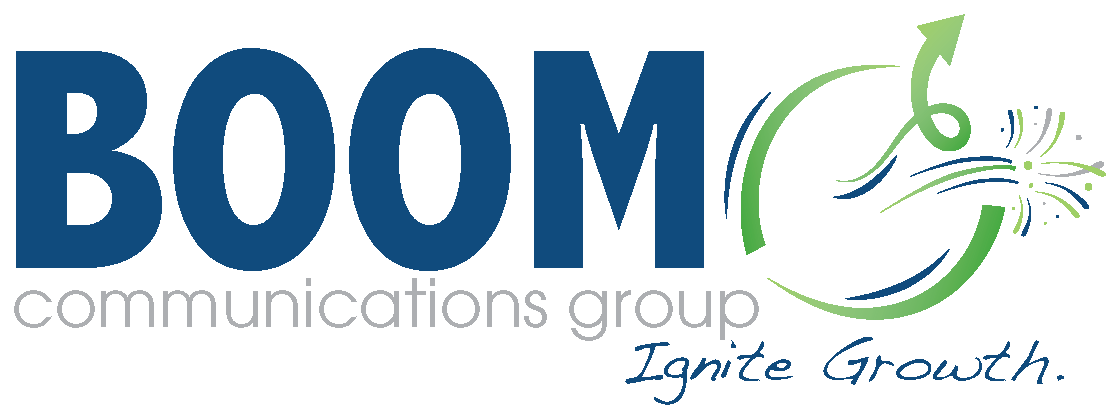
The healthcare industry is in a state of constant evolution. Staying one step ahead of the competition is no easy task, especially when competing against large hospital networks with seemingly bottomless ad budgets. However, patients are more interested in taking control of their healthcare, creating new opportunities for local healthcare marketing.
This comprehensive guide will examine the importance of healthcare marketing on the local level, plus proven strategies to maximize marketing effectiveness. If you’re ready to learn more, let’s dive in.
Key Takeaways:
- Local healthcare marketing is essential in a highly competitive market.
- Healthcare organizations can optimize their online presence through local SEO listings, content marketing, email marketing, patient reviews, and social media.
- Consistent branding, local print publications, and relevant analytical data also drive campaign success.
Why is Local Healthcare Marketing Important?
Healthcare marketing strives to develop new marketing and communication strategies to reach new patients, improve customer care, and promote communication, engagement, and information sharing.
The healthcare industry is highly competitive, and standing out is a challenge. Establishing a strong local healthcare marketing strategy provides a long list of benefits for your organization, including:
- Enhancing the patient experience
- Establishing trust
- Building a positive reputation
- Increasing patient attraction and retention
- Boosting local physician referrals
- Promoting important medical services and innovations
- Scaling your healthcare organization’s reach
Healthcare marketing is different from other industries. In medicine, an organization’s reputation and presentation are the most important driving factors to successful marketing campaigns.
8 Strategies to Improve Your Local Healthcare Marketing Strategy
Having a well-planned, carefully budgeted approach is vital to success when planning your marketing strategy. These proven methods will give your healthcare organization a competitive edge:
1. Optimize Your Local SEO Listings
Healthcare marketing is often a localized or regional endeavor by nature because patients generally seek medical care within a certain travel radius. Like with other local businesses, most consumers perform an online search for providers in their area.

To make sure your organization ranks in the search results, optimize your website and create a business profile with Google My Business. Verify that your listing shows the correct medical category, contact information, and business hours.
Physician listings are also essential for your local SEO strategy. When patients search for “pediatrist near me” or google the name of a doctor their friend recommended, they should see an up-to-date listing directing them to your business.
2. Invest in Content Marketing
Consider how consumers interact with your brand’s touchpoints at various stages in their journey. In most cases, new patients contact your organization before setting up an appointment or speaking with a representative. This interaction may be with a social media post, online article, paid ad, et cetera. How are you managing that content?
Content marketing costs 62% less than traditional marketing, and it generates approximately three times as many leads. Mayo Clinic is a prime example of how a healthcare organization has leveraged content marketing to become an international industry leader. If you’ve ever searched online to identify your symptoms, chances are you’ve seen a Mayo Clinic article at the top of the search results.
Investing in content creation improves your search engine rankings, establishes your healthcare organization’s expertise as a trusted authority within your industry, and provides genuine value to your consumers.
3. Use Consistent Branding
No matter how confident you are about your organization’s reputation, don’t underestimate the power of branding. As far as patients are concerned, white coats all look the same. Consistent branding will:
- Convey your business’s values and priorities
- Improve brand awareness and perception
- Drive public narrative
- Build trust
- Foster loyalty
Seven out of ten customers will buy more from brands they trust and abandon those they don’t. Maintaining consistent messaging, brand colors, imagery, et cetera will help your healthcare organization stand out from the competition and establish what you stand for.
4. Advertise in Local Publications
Although focusing on SEO, content marketing, and social media is important, don’t underestimate the reach of local print publications such as newspapers, community newsletters, magazines, et cetera. Local publications tend to have higher credibility among readers, and leveraging these featured spots demonstrates that you are a community-engaged organization.
5. Grow Your Email List
In addition to boosting your email conversion rate, you should also be actively growing your email list. Email marketing continues to be a powerful tool that allows you to convey essential healthcare updates, communicate with patients, share content, remarket to existing or former patients, create new funnels, et cetera.
Explore new ways to collect email addresses such as:
- Downloadable content like ebooks and whitepapers
- Paid advertising funnels such as quizzes
- Webinars and tutorials
- Newsletters
6. Build Trust with Patient Reviews
Did you know that 93% of customers read online reviews before buying a product? Online reviews can make or break your reputation in today’s digital world, which matters more in the healthcare industry than any other.

Bad reviews, or even no reviews at all, have a detrimental impact on your organization’s ability to attract new patients. In addition, reviews are a critical ranking factor for Google My Business and SEO in general.
An easy way to boost your local healthcare marketing strategy is to encourage patients to post reviews about their experience. Generating consistently positive reviews will improve your search rankings and demonstrate your trustworthiness.
7. Leverage Social Media
Social media should be part of your content marketing strategy. Analysts report a staggering 3.96 billion social media users in 2022, up 4.8% from the previous year. If you’re not tapping into this massive market, you’re missing a prime opportunity.
Organic social media enables your organization to engage with followers, expand your reach, convey updates and information, educate patients, and foster a more comfortable, human level of interaction. Paid social media should also be part of your strategy, as it allows you to target viewers by location and interests.
8. Use Analytical Data to Measure Your Progress
All marketing strategies are rooted in data. Without it, your team is flying blind. Tracking data with real-time insights and historical trends allows you to analyze your current standing and identify opportunities for improvement.
Once you start implementing new marketing campaigns, analytics will allow your team to measure the success or failure of their initiatives. Comprehending what is and isn’t working is imperative to adjust your strategy and reach the results you want.
Boost Your Local Healthcare Marketing Strategy
Although healthcare organizations utilize marketing campaigns differently from most consumerist industries, marketing is critical in attracting new patients and retaining existing ones. Strategic initiatives make a deep impact on your business’s authority. Local healthcare marketing shows patients that they can and should trust you as their primary healthcare provider.
Ready to boost your local healthcare marketing strategy? Contact Boom Communications Group to learn how we can help your business grow.
